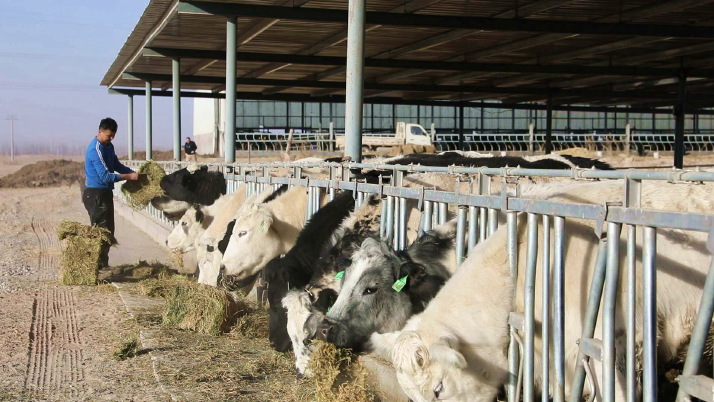BEIJING: Choosing to open a business in Xinjiang Uygur Autonomous Region was a sensible choice. There may not be another location on the entire globe that could provide me with such an opportunity,” said Danny Camiel Decombel, a 59-year-old Belgian businessman. For him, Xinjiang serves as both his second home and an ideal location for his business.
Decombel grew up in a seaside town in Belgium and never imagined growing up that he would build a connection with China. However, undertaking a bachelor’s degree in agricultural engineering, his goal was to work in a developing nation. On the day of his graduation in 1986, the head of the department called Decombel into his office and told him about an open position at a Shenzhen-based feed additive company. After his application and acceptance, and more than a year of preparation, he arrived in China in January 1988.
When Decombel arrived, China was in the early stages of reform and opening up and Shenzhen was still in its first decade as a special economic zone in Guangdong Province. The young Belgian found himself in the middle of a sea of construction sites and now recalls the absence of a telephone in the company office, the lack of an expressway or airport in Shenzhen, and constant congestion on the winding road connecting the city and Guangzhou, capital of Guangdong.
These deficiencies were short-lived, however, and a motorway connecting Shenzhen and Guangzhou, Shenzhen Airport, and an international direct dial office phone line with Internet access were all set up within a few short years. “The once-small fishing village has grown into the center of modern global industry. Never before have I seen such rapid expansion,” Decombel said.
Later, he worked in Tianjin, Guangzhou, Quanzhou in Fujian Province, and other locations. Thanks to these experiences, he now has a strong understanding of China, particularly its development. He also met his wife during this period, who is from Fujian, and the couple now leads a happy life with two children.
In 2000, Decombel began working for the Finnish firm Kemira in Zhanjiang, Guangdong. At the time, Kemira was the industry pioneer in the development of arid-region-appropriate water-soluble fertilizers. Kemira’s main market in China was in the region of Xinjiang, where drip irrigation technology was widely used. Decombel began working as the head of the company in Xinjiang in 2001.
When Kemira announced in 2005 that it would leave the fertilizer business, Decombel made the decision to establish a company in Xinjiang and produce his own water-soluble fertilizers. “Belgium and even Europe have very little land and few prospects for expansion, whereas China’s agriculture has significant opportunity for growth. Additionally, Xinjiang made extensive use of drip irrigation, and water-soluble fertilizers were in high demand,” he said.
When Decombel visited farmers in north Xinjiang in 2005 and engaged them in discussions about the effectiveness of water-soluble fertilizers, he discovered that almost everyone was aware of the benefits of the product. The next year, he established a business specializing in the manufacturing of water-soluble fertilizers in north Xinjiang’s Shawan County.
–The Daily Mail-Beijing review news exchange item





